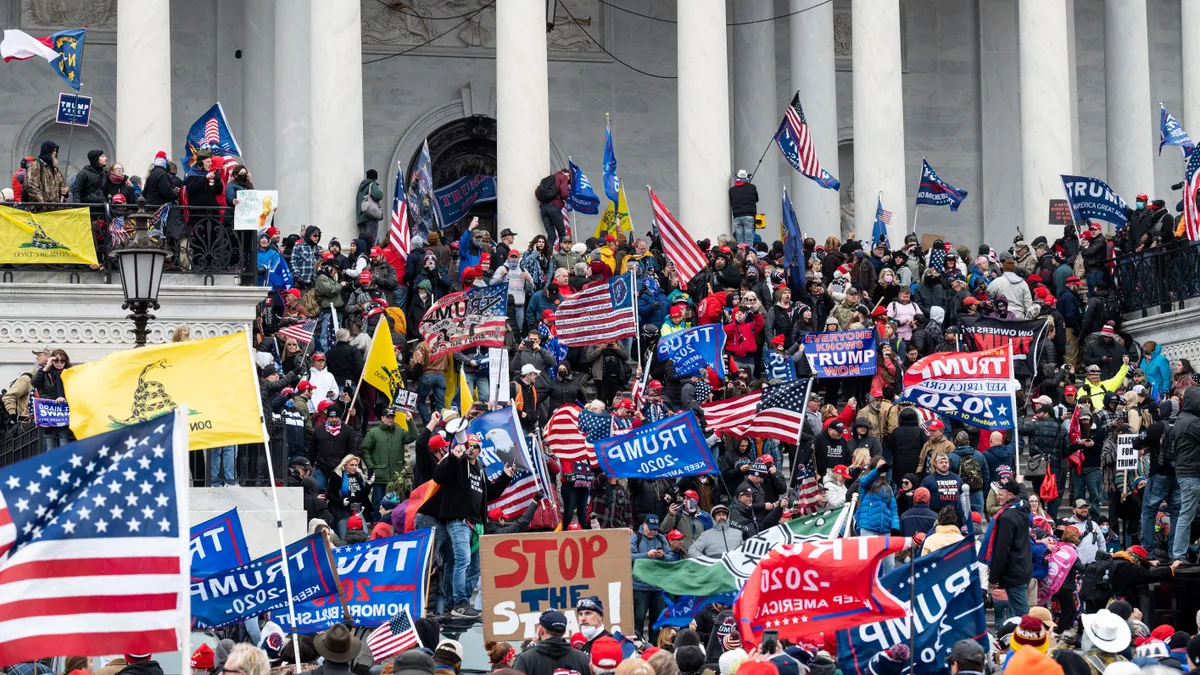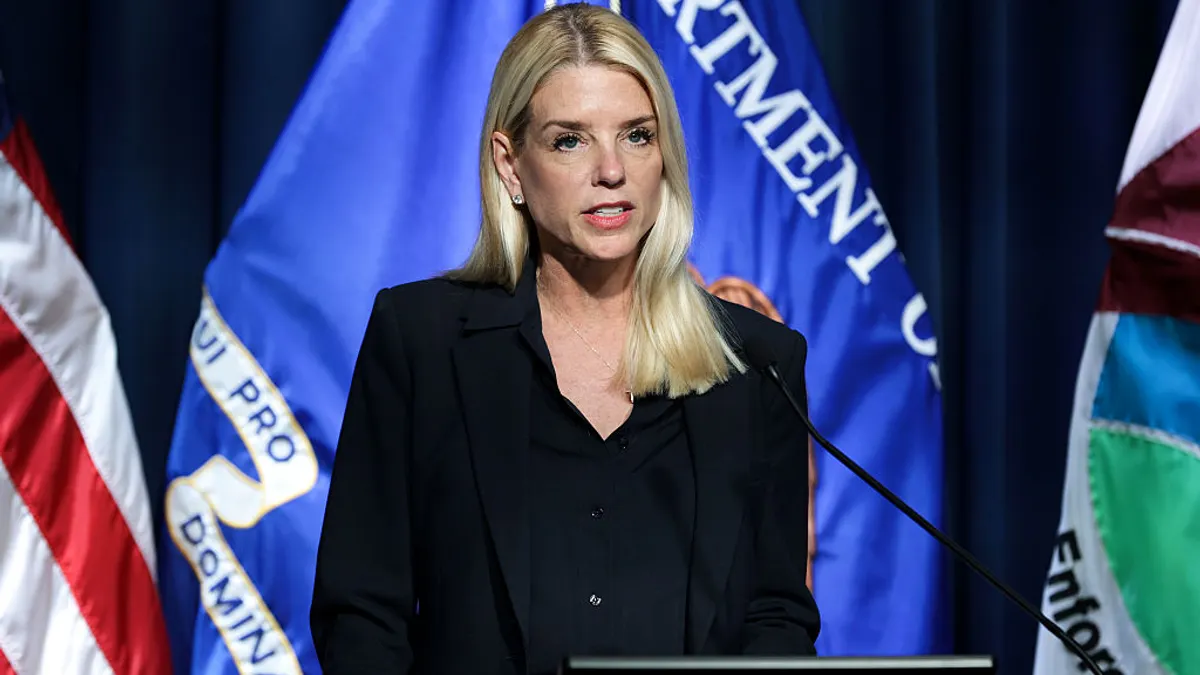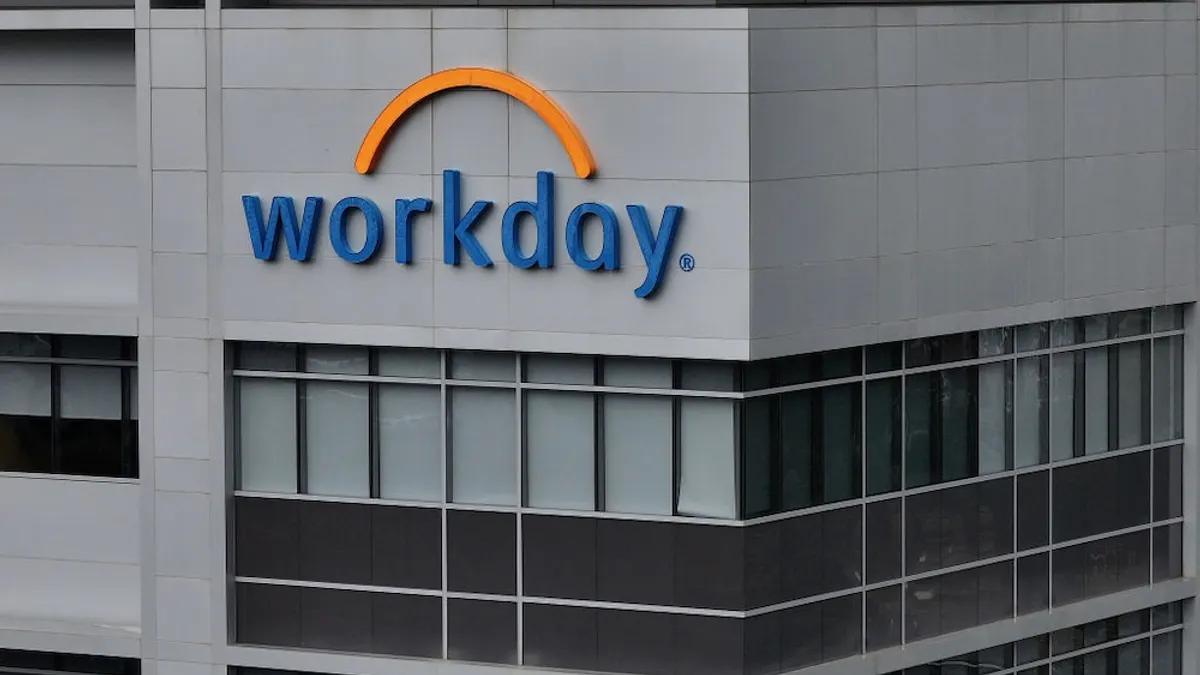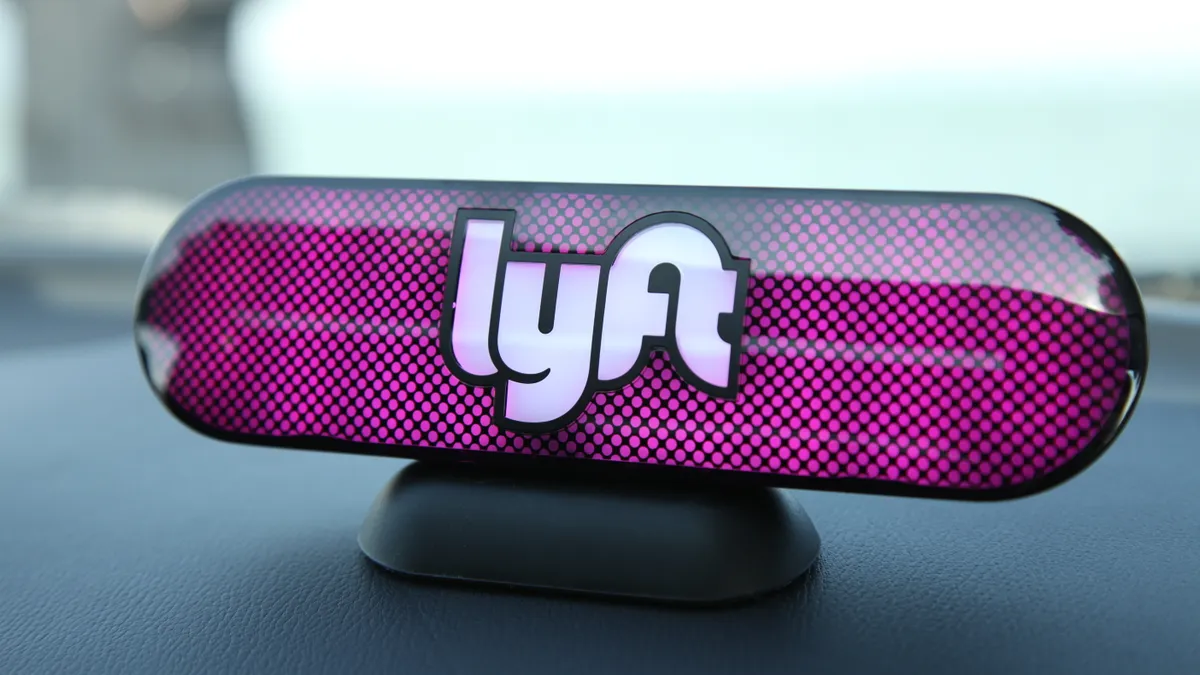A number of employer advocacy groups moved swiftly Wednesday to condemn the insurrection at the U.S. Capitol, and employers were just as quick to fire employees involved.
It's a sea change from a time when employers tried to stay out of external matters, according to Maurice Schweitzer, a professor of management at the Wharton School of the University of Pennsylvania. "This is unprecedented. Companies and organizations are reacting far faster than ever," he told HR Dive via email in the immediate aftermath.
'They're just not willing to abide it'
Perhaps most notable in this week's statements was one from the National Association of Manufacturers (NAM). The organization represents more than 14,000 employers and has connections to the administration; among other things, it had President Donald Trump speak at a 2017 event. The organization minced no words Wednesday, directly calling on Vice President Mike Pence to invoke the 25th Amendment and remove Trump from office — even before the Capitol had been cleared.
"That manufacturing companies are coming out, I think that tells you for them Trump has really crossed a line and created so much chaos and uncertainty that he's made their lives more difficult and they're just not willing to abide it anymore," Schweitzer said in a subsequent interview.
Other industry groups such as the U.S. Chamber of Commerce, the National Retail Federation and Business Roundtable also quickly expressed strong disapproval of the day's events but stopped short of calling for the president's removal. The Society for Human Resource Management — which has long defended its ties to Trump — did not release a statement.
Individual employers also began public termination of employees identified in photos and videos from the Capitol. A marketing company in Maryland, for example, said Thursday it had fired an employee who was shown inside the building wearing a company identification badge; the employer said it supports the exercise of free speech but could not tolerate "dangerous conduct that endangers the health and safety of others." Goosehead Insurance, a company based in Texas, also announced via Twitter Thursday morning that it had fired an employee who was, according to various media reports, its associate general counsel and director of HR.
In 2017, when white supremacists marched in Charlottesville, Virginia, some questioned the proper course of action for participants' employers. The insurrection at the Capitol, however, appears to have crossed a line, Schweitzer said. It violated a bedrock principle of our democracy, he said, "and I think there are many people, employers included, [who decided] 'we need to send a very clear message that we can't normalize, we can't accept it and that we've been accommodating too much for too long.'"
Immediate steps
Employees increasingly expect employers to take a stand on social issues, several recent surveys have revealed, and some have said they'll bypass companies that don't fit their values. Business Roundtable even updated its mission statement in 2019 to formally recognize that shift.
The accompanying rise in corporate activism has been happening for about 15 years, according to Schweitzer. People now look to business leaders to "not only be managers of an organization but also to take a stand on political or moral issues," he said, and leaders are answering the call. There was Starbucks' public commitment to hire refugees, Apple's stand on gay rights and Paypal's refusal to set up shop in North Carolina after the state enacted its "bathroom bill," he noted. No longer are leaders expected to focus solely on the task of running a company, Schweitzer said.
That change was seen clearly during the 2020 protests for racial justice that followed the police killing of George Floyd. The response was perhaps not as swift as last week's but in the early weeks, following employee and consumer calls for action, many expressed support for the social movement.
Employers also scrambled to find ways to support employees. Workplace experts urged transparency. With Black employees grieving, J. Christopher Hamilton, an attorney and assistant professor at the S.I. Newhouse School of Public Communications at Syracuse University, told HR Dive at the time that employers needed to reaffirm nondiscrimination policies, demonstrate empathy and offer support. "If you don't acknowledge the emotional and psychological impact on your staff, during a national crisis," Hamilton said, "then you will not be prepared to address the implications that has for your bottom line."
Employers should prioritize supportive resources and transparency again now, Schweitzer said. Be transparent about the challenges at hand and promise to keep employees updated, he recommended. It's also important to realize that individuals are likely already anxious about the pandemic, disconnected because of social distancing measures and feeling its economic effects, he noted.
Large companies, especially, also may have to acknowledge they likely employ workers who support the president and who are upset that they will soon face a different reality. "It's a very anxious time for everybody and I think the political uncertainty has added to that," he said. "Employers should reach out because that anxiety is going to harm productivity."
Lasting change
It's likely President-elect Joe Biden will ease the sense of uncertainty and crisis that Trump created, Schweitzer said, which may lessen pressure on employers. But there are clearly social justice issues such as the Black Lives Matter movement that will remain important, he said.
"This is an enduring trend that's going to continue," Schweitzer continued, especially as the workforce becomes more mobile — a phenomenon the pandemic is expected to accelerate. Employers will compete in increasingly large talent pools and workers will be able to choose employers that align with their values. This means a continued expectation that corporate leaders are committed to social responsibility, he said.
It makes sense then that tech companies were among the first to take a stand on social issues, he said. They were some of the first to have highly educated, mobile workforces. Google, Apple, Paypal and others found themselves with employees who could easily work for another company; geography wasn't a huge concern in recent years.
And that's exactly what makes the manufacturing association's Wednesday statement so novel. NAM represents employers that need a lot of work done on site and often rely on a single town for labor; "It's not one I would have anticipated," Schweitzer said. But those who were biting their tongues are now realizing it's "a question of legacy," he said; "I think some executives are coming to realize that having supported Trump is not going to be a good look."





















